If you’re looking to become a mobile DJ business, there are a lot of things you’ll want to take into consideration. Not only are mobile DJs less busy when compared to club DJs, but they’re also required to take their equipment with them virtually to every gig they agree to.
And while this may not be too big of an issue in the beginning, as you grow and get bigger and better speakers, stands, and other equipment, even your car may not be enough.
Below, we’re going to get into the various vehicles you as a mobile DJ should consider looking into. We’ll check out their respective pros and cons so that you can determine how much space and finances you have before committing to any particular option.
What is The Best Vehicle For A DJ?
The best mobile DJ vehicles depend on their specific needs and preferences. However, some popular options include vans, sprinter vans, or SUVs, as they provide enough space for equipment and storage.
A van or a sprinter van is a great option as it provides ample space for a DJ setup and other equipment. These vehicles are also easily customizable, and you can add shelving, storage, and soundproofing to optimize them for your needs.
An SUV can also be a good option if the DJ needs to carry equipment to and from gigs, as they offer ample storage space and are usually more comfortable for longer drives.
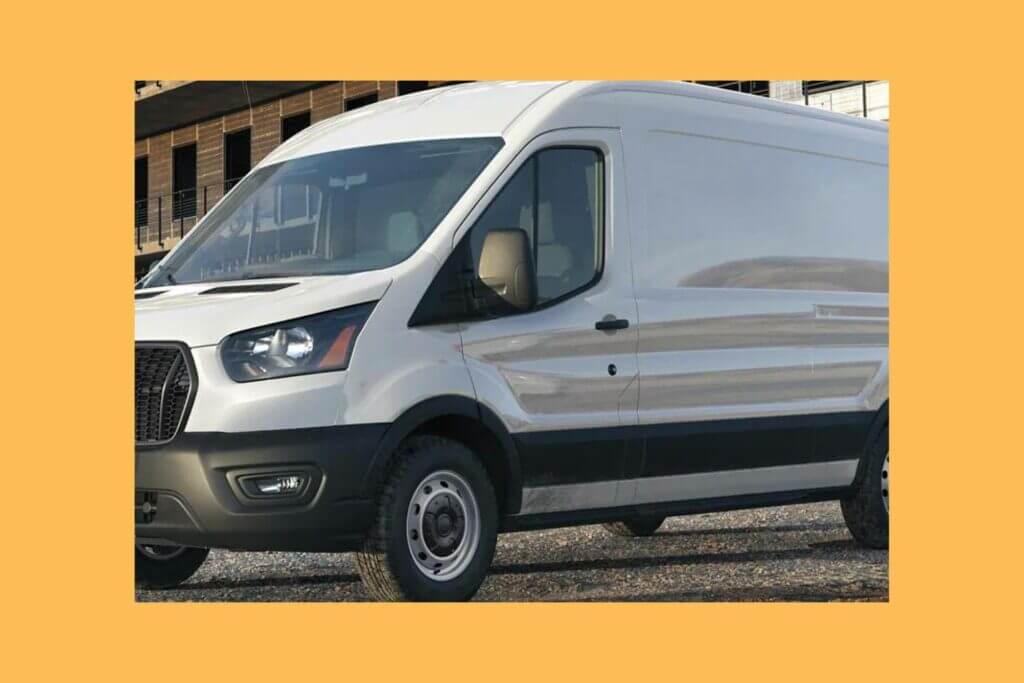
Read this next: Mobile DJ Set Up: Picking The Best Mobile DJing Gear
Mobile DJ Vehicles
Ultimately, the best vehicle for a DJ will depend on the amount of equipment they need to carry, the distance they need to travel, and their personal preferences. It’s a good idea to consider factors such as fuel efficiency, reliability, and maintenance costs when choosing a vehicle.
Option 1. Your Own Wheels!
For most people starting out, you’re only method of transport is going to be your personal vehicle. As a mobile DJ, while there are some benefits over a club DJ, one of the setbacks is the fact that you need to take all of your equipment with you and set up and break down your stage virtually every time.
This is in stark contrast with club DJs, which often have the majority of their equipment already set up at the club or venue.
The good news is that, if you’re starting, there’s a good chance you don’t have a ton of equipment that will need setting up and breaking down.
In fact, it’s likely everything for your DJ booth kit is on the smaller and more mobile side, making the use of your current vehicle an easier sell than a mobile DJ that’s been performing for a few years.
So you don’t necessarily have to have a mini-van with a huge cargo space right now! Even a small car can work.
There are a few advantages to using your car, namely the fact that you aren’t paying anything extra besides additional gas and maintenance costs. Your car is also likely going to be much smaller than many other mobile DJ options, making it easier to drive and navigate with. This includes the city as well as the suburban area.
In terms of disadvantages, it really just comes down to space. As you continue to grow and expand your equipment quality, eventually you’ll feel like you have more than what your car can reasonably carry. At that point, it’ll be time to look at some of the larger options available.
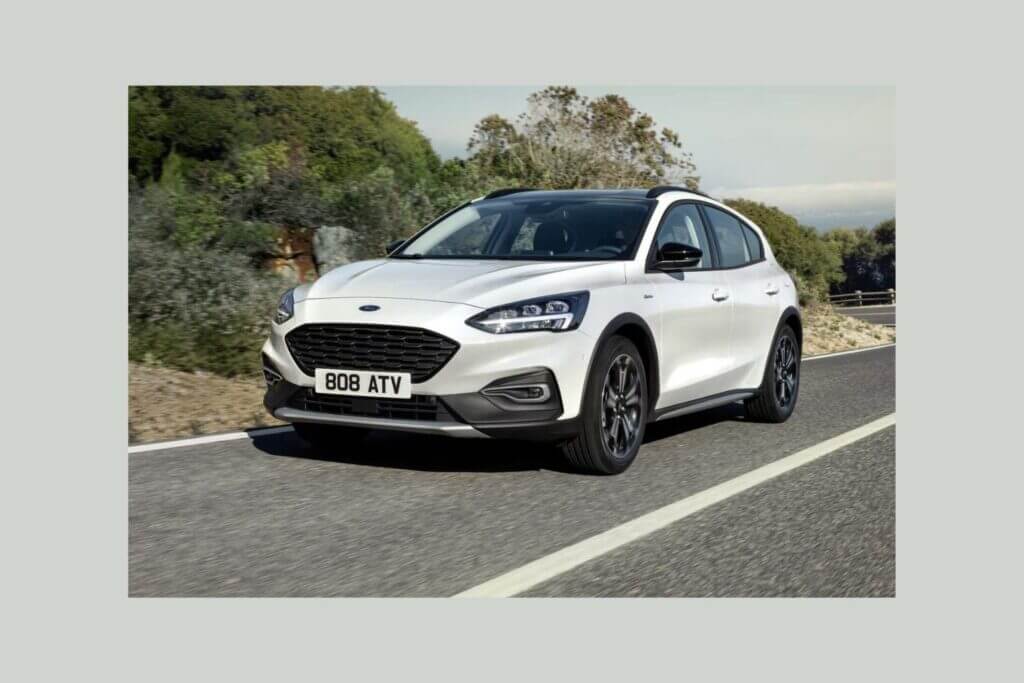
Read this next: What Is A Mobile DJ? (Mobile DJing Uncovered)
Option 2. A Trailer
Trailers are a middle ground between a rental vehicle and a larger moving vehicle you’re buying directly. Most DJs with a ton of gear tend to opt for trailers since they can just be attached to whatever van or truck they already have available.
Trailers are easily the most affordable option if you’re trying to pay for something permanent.
Depending on what you’re looking for in size, trailers can range between $2,000 and $4,500, with used trailers going for even less. Trailers are also easy to load and unload, often being level with the ground or coming with a small ramp to walk up.
The challenge with trailers, however, is the fact that they are entirely separate storage containers from the vehicle itself.
This means you need to attach the trailer to your car or truck in order to bring it along.
The attachment process can be intimidating if you don’t know what you’re doing and driving with a trailer attached can be a nightmare in many situations, especially if it’s on the larger side.
This can be great when you’re driving since it means the amount of weight you’re dealing with isn’t going to be too difficult to transport.
Trailers are also notoriously lightweight and difficult to control.
On the other hand, if you need to make sharp turns or come to an immediate stop, trailers can easily spiral out of control, causing an accident. As such, if you’re operating a trailer you’ll want to follow all safety rules of the road while driving as defensively as possible from the start of your trip to its end.
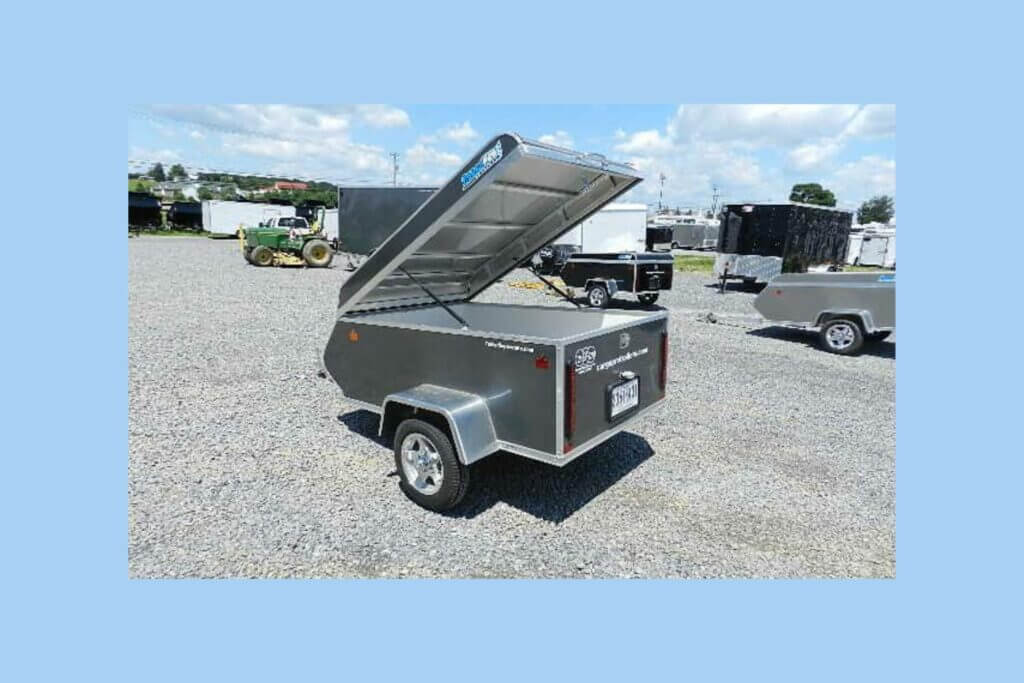
Read this next: What is A DJ Booth? (Stationary and Mobile DJ Booths EXPLAINED)
Option 3. Box Truck
Box trucks are a step up from trailers, both in size and storage as well as the fact that you can drive them directly. As the name implies, box trucks are essentially large trucks with box-shaped cargo frames.
These come in various size options, meaning you’ll definitely find a truck that meets your expectations.
Similar to a trailer, a box truck is broken into two separate sections.
The front is the “driving” section, while the cargo is situated in the back of the truck. And like trailers, you can’t access any of the materials of the cargo through the front driver side, but rather only from the back cargo doors.
Box trucks, while more expensive than trailers, can be picked up at a fairly moderate price point, with quality used trucks ranging from $12k on the low end up to $24k at the high end.
On the other hand, a much newer box truck isn’t much more, with prices ranging from $30k up to $41k.
If you’re on a tight budget, you can find some older and smaller models for around $2,000, though don’t expect them to win any beauty contests.
In addition to pricing advantages, box trucks are also small enough to not require a special license nor are they particularly difficult to load and unload (due to the included roll-out ramp available).
This makes them very easily accessible regardless of who you are, provided you can cover the costs.
The only downside for the box truck is its awkward size, making parking a somewhat difficult task. It’s pretty much as easy to park as most large vehicles, though its box shape can make things tricky when driving in the city.
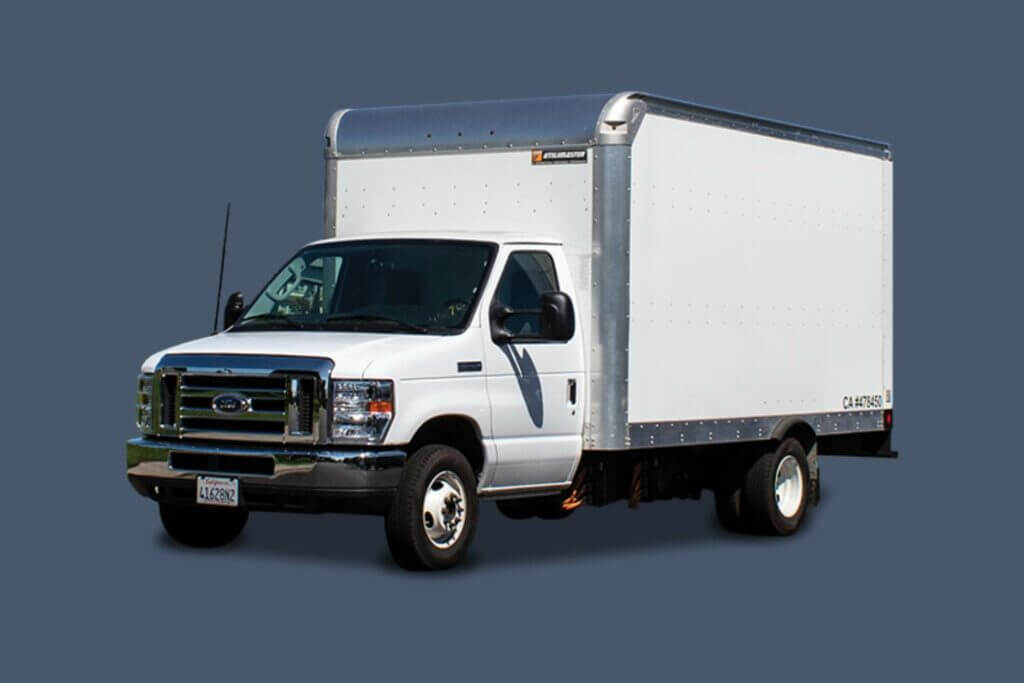
Read this next: How To MC A Wedding (PROPERLY!)
Option 4. A Cargo Van
Another option worth looking into is cargo vans or a Ford Transit type of van. If you’re a mobile DJ and plan to hit up multiple gigs over the month, a cargo van has a lot of advantages. Unlike box trucks or trailers, a cargo van acts as a one-piece vehicle, with all of your equipment immediately within reach at all times within the cargo space.
Yet, just as is the case for a box truck or trailer, there are multiple size options available, meaning you can get them as large as you want to cover as many things as you need.
In addition to the easy accessibility, cargo vans are also much easier to drive and navigate when compared to a trailer or a box truck.
Because of their compact size, and smaller build, they can be operated more in line with how you would a regular car or van. This makes it considerably more attractive and less intimidating when compared to some of the other options.
The downsides of a cargo van largely have to deal with price as well as storage space. When it comes to storage space, cargo vans, despite their size, are actually smaller than most box trucks.
As such you must evaluate how much equipment you have as well as their respective sizes and dimensions. If you expect to get more pieces later on, you’ll want to take that into consideration as well.
From a pricing perspective, cargo vans are generally the more expensive option on this list.
That said, it’s also true that some of the larger cargo van options are more affordable and less expensive than the larger box trucks.
Option 5. Rental Vehicle
If you find the above options or your own current car isn’t going to be enough, you can always opt for a rental to help you from point A to point B. For many people, rentals are a great one-off option with a ton of different companies to choose from.
More commonly cited options include U-Haul trailers as well as different box trucks or vans.
They are a super convenient way to transport your gear, especially if you don’t expect to do a lot of running around throughout the month (possibly four shows or less).
The reason why you want to only have four shows or less per month as a mobile DJ is that rental trucks can be very expensive. Since these companies are out to make a profit, you have to understand that they are looking to charge as much as possible for the amount of time you plan to use it.
This is especially true for mobile DJs, which often find themselves needing it for very short stints rather than the longer multi-day uses most people tend to sign up for.
In many cases, a mobile DJ will have to opt for either paying for two days (plus gas) or rushing the gig along to make sure they get the rental back on time. For reference, a rental truck can often cost around $100 per day.
If you’re paid $400-60000 for a gig, a two-day rental could be eating well into a third of your revenue, and that’s before you pay out anything else.
It’s because of these reasons that most people stick to rentals for as little time as possible, many opting to go from their personal vehicles directly to a trailer or box truck.

Read this next: Dealing With Song Requests (Professionally!)
How To Keep Your DJ Equipment Safe From Theft
Now that you know what vehicles are available for moving your DJ equipment, it’s now worth it to know how to ideally keep it safe. It’s no secret that DJ gear isn’t cheap, and if you’re already looking for a proper vehicle to carry it all in, odds are you have enough to warrant catching a thief’s eye.
Below are several important steps you should follow whenever traveling to a gig or another location. While it can’t 100% guarantee nothing will happen (nothing can) it can greatly reduce the chances you’ll need to replace something that may have set you back a couple hundred or thousand dollars.
1. Always Park Close
This may seem like a strange point, but it’s surprisingly effective. Whether you’re heading to the airport or about to perform, you want to park as close to the entrance as possible, even if you are going to be charged a premium for it.
This is because most criminal acts happen as far from the entrance as possible due to a lack of cameras or the reduced chance that someone could walk by.
You also want to make sure your backpack isn’t prominently displayed and visible even if a person were to look through the windows of your car. Consider putting your bag under a seat or inside the trunk for additional protection and safety.
2. Don’t Advertise
Secondly, and probably most importantly, you don’t want to advertise what you have in your bag. While there are certain people that may grab your bag regardless, this chance spikes tremendously when you make a point of freely giving out information about what you do, what you’ve got with you, and how much it may cost.

Read this next: DJ Insurance – You MUST Get This in 2023
Even if you’re traveling with others, try to keep any conversations about what you have to a minimum, as you never know who may be listening in.
The same is true even when first heading out. Ideally, you should be as non-descript and as subtle as possible, with virtually no one knowing who you are or what you do.
3. Have an Assistant
The first useful tip for keeping your gear safe is by hiring help whenever moving to a venue. This is especially true for locations that are in the seedier parts of town. You want to make sure you have at least one person to help you move things in or out of the vehicle.
The slower your take and the more difficult the items are to move, the more likely you’ll be to either get robbed directly or be stolen from when you aren’t paying attention.
Bringing a second or third person along can alleviate this issue, reducing your chance of being taken advantage of.
3. Keep Your Bag Close
This may seem like a no-brainer, but the truth is many people don’t take luggage safely when traveling at the airport. Simply put, if you want to avoid having your bags taken or risk losing your stuff, you need to keep it close to you at all times.
If you want to go that extra mile, try to keep it between your feet, as this makes it much more difficult for a person to grab compared to next to you.
4. Contact The Police If There’s An Incident
Sadly, if you do find that your stuff has been stolen, don’t hesitate to contact the police as quickly as possible. The longer you wait, the more time the person has to offload and sell your stuff.
You should also visit the local pawn shops in your area. With pawn shops being one of the few places a person can easily sell their goods, it’s common to find that your stolen goods were sold off to a pawn shop or pawnbroker.
If it’s possible, try reading the serial number out to them to see if they have your item.
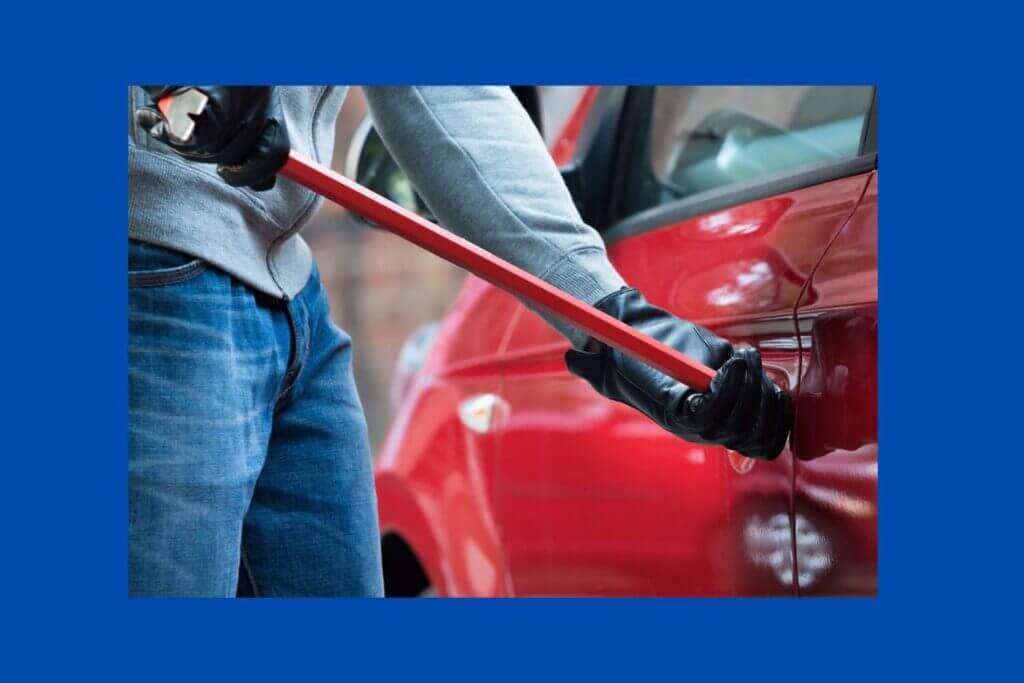
Read this next: Best Musical Instrument Insurance: GUARANTEED Peace of Mind! Just Do it!
Vehicles For A DJ: The Verdict
As you can see, while each of these options has its respective pros and cons, there is no one-size-fits-all situation or a definitive vehicle that works for everyone in every situation. If you’re starting out, your needs are going to be much less extensive when compared to a professional that has considerably more equipment they need to take around with them.
Ideally, because every other vehicle option costs money, it’s best to stick with your vehicle for as long as possible, only renting out one of the other options as your DJ business begins to seriously grow and expand.
While a personal vehicle is great for getting started, eventually you’re going to need to invest in getting a vehicle that’s large enough to handle all of your gear and can get you where you need to be as easy and as efficiently a manner as possible.
At that point, you’ll want to test out as many options as possible to see which offers the best prices while also being the safest and having quality weight distribution.
Take some time and see which option is going to work best for you and your setup. Then, pull the trigger and make sure you’ve got enough space to make every one of your performances one to remember.




